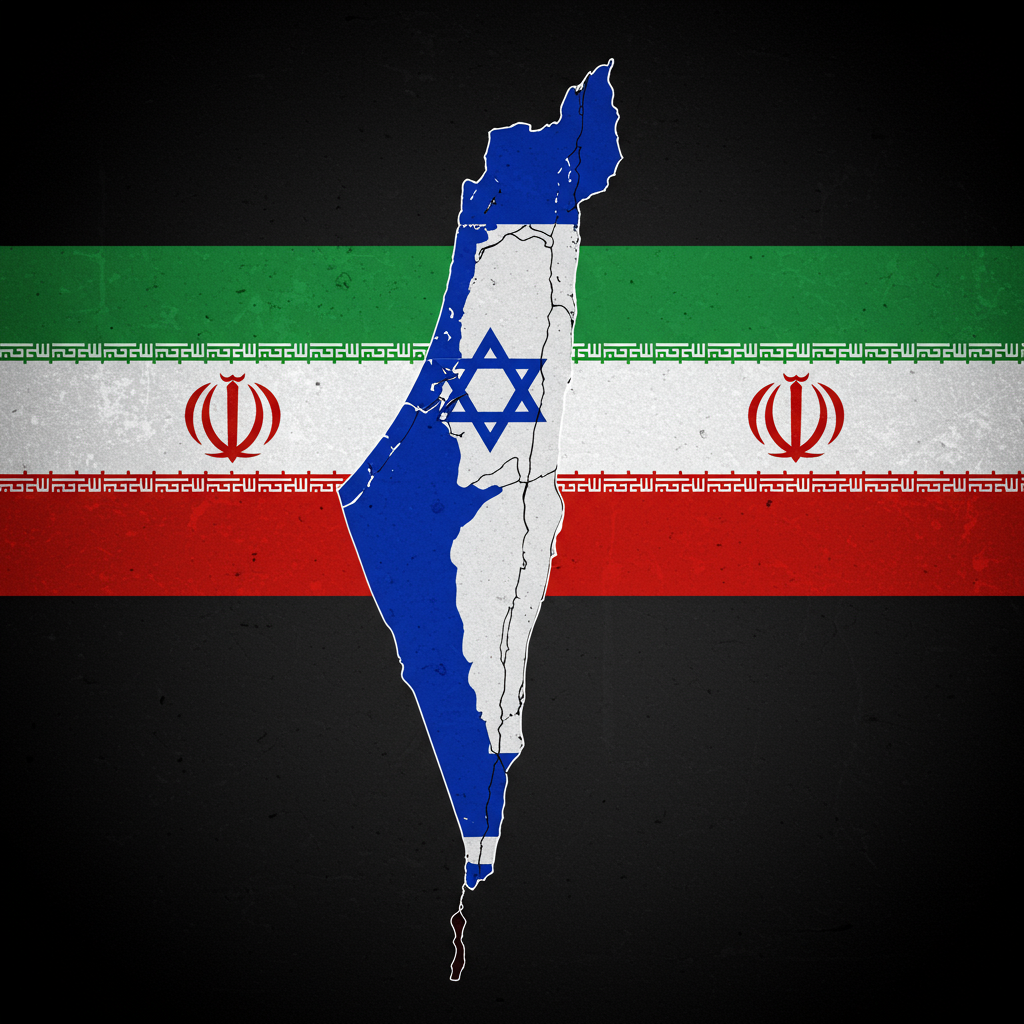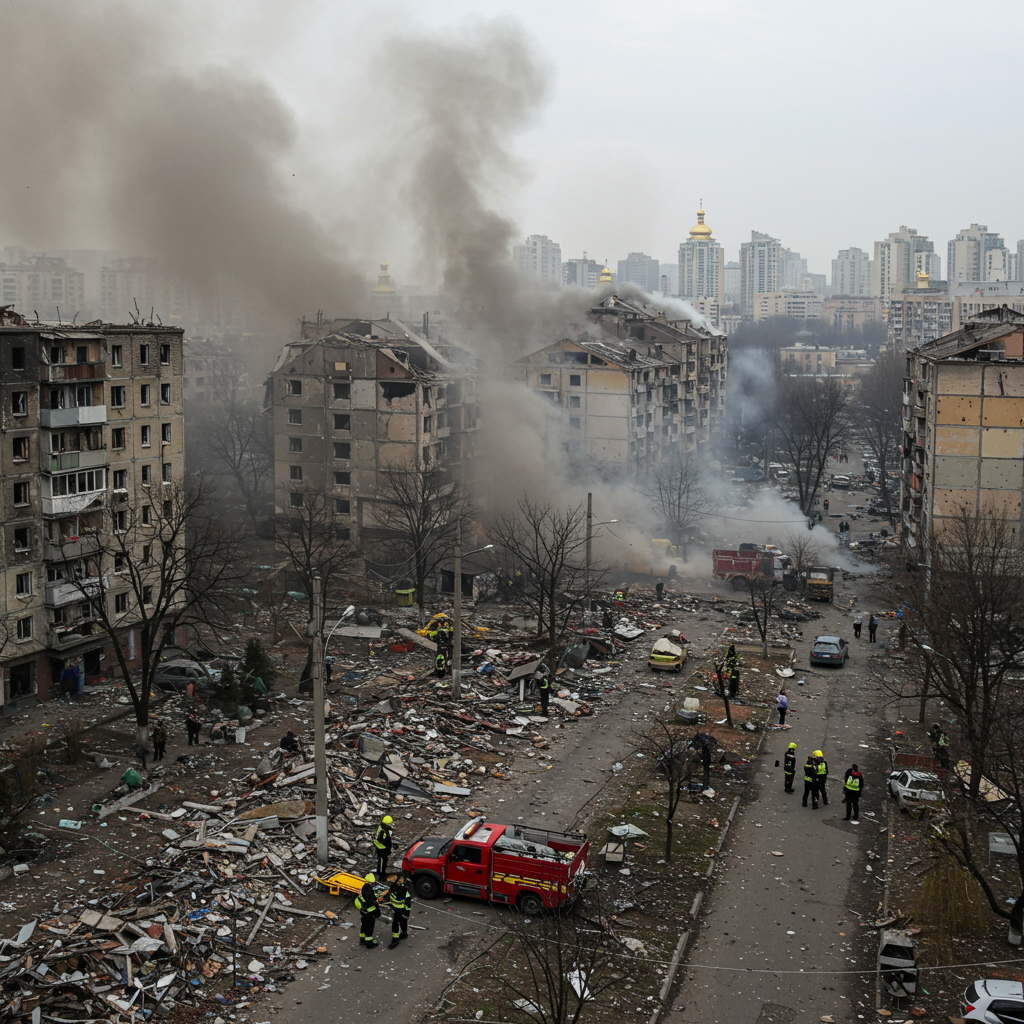A shaky ceasefire between Israel and Iran, announced Tuesday morning, offered a fragile pause after 12 days of intense fighting that had ignited fears of a wider regional conflict. However, the truce appeared unstable from the outset, with both nations quickly exchanging accusations of violating the agreement just hours after it took effect.
U.S. President Donald Trump, who brokered and announced the ceasefire late Monday, confirmed that both Israel and Iran had reportedly breached the deal. Speaking to reporters, Trump suggested the violations might not have been intentional but issued a stern warning specifically to Israel via social media: “BRING YOUR PILOTS HOME, NOW!”
Accusations Fly on Both Sides
Immediately following the ceasefire’s start, tensions reignited. Israeli Defense Minister Israel Katz accused Iran of launching a barrage of missiles towards Israel and stated he had ordered the military to “respond forcefully” to this perceived violation. Iran’s state broadcaster swiftly denied these claims via its Telegram channel.
Conversely, Iran accused Israel of conducting three waves of attacks shortly after the truce was declared effective by President Trump. As of the latest reports, Israel had not publicly responded to these specific Iranian allegations.
Heavy Toll of the Conflict
The recent 12 days of hostilities exacted a heavy human cost. According to Hossein Kermanpour, a spokesperson for Iran’s Health Ministry, Israeli attacks killed at least 610 people in Iran. This tragic figure included at least 13 children, the youngest reportedly just two months old. More than 4,700 individuals were injured, with 971 still requiring hospitalization. Human rights groups suggest the official toll may be an undercount, with one group estimating closer to 1,000 fatalities.
International Reactions and US Domestic Moves
World leaders largely welcomed the news of the ceasefire early Tuesday and called for further de-escalation in the volatile region. However, many of these statements were issued before or concurrently with the reports of immediate violations, leaving the durability of the agreement uncertain.
Russian Foreign Minister Sergei Lavrov echoed this sentiment, welcoming the truce but noting the difficulty in assessing its longevity given the conflicting reports of continued hostilities. Russia, he added, remains “in favor of peace.”
Meanwhile, in the United States, three House Democratic committee leaders introduced a War Powers Resolution aimed at limiting President Trump’s ability to escalate conflict with Iran without explicit congressional approval. Separately, NORAD announced a nighttime defense drill over Washington, D.C., later in the week, clarifying that the exercise was unrelated to Iran or any imminent threat.
Background and Lead-Up to the Truce
The ceasefire discussions were reportedly spearheaded by President Trump and Vice President JD Vance, working directly with Qatari Emir Tamim bin Hamad Al Thani and Prime Minister Mohammed bin Abdulrahman Al Thani. A senior U.S. official indicated that the blueprint for the agreement originated from discussions with Iranian officials, who conditioned nuclear program talks on Israel halting its bombing campaign.
Leading up to the ceasefire’s start, both sides engaged in significant strikes. Israel carried out overnight attacks on Iran, ordering evacuations in parts of Tehran and destroying missile launchers. An Israeli military spokesman stated Israel had “achieved all the objectives” of its operation and dropped over 100 munitions on Tehran in a final push before the truce.
Iran, in turn, had struck a U.S. military base in Qatar on Monday, characterizing it as self-defense following U.S. strikes on Iranian nuclear facilities. An Iranian Foreign Ministry spokesman asserted this action was unrelated to its relationship with Qatar and aimed to prevent “U.S./Israeli criminal aggressions” from dividing regional countries.
Earlier Israeli strikes had prompted an exclusive report detailing a covert Israeli campaign to intimidate Iranian officials, including a reported warning call to a top Iranian general telling him he had “12 hours to escape” before strikes on June 13th.
Impact in Israel
Iran’s early-morning missile barrages before the ceasefire took effect caused significant damage and casualties in southern Israel. At least four people were killed in Beersheba, where residential buildings were hit. Rescue efforts were underway at the scene of a collapsed seven-story building.
In response to the ceasefire, the Hostages and Missing Families Forum in Israel called for the agreement to be expanded to include Gaza, urging the government to seize the opportunity to secure the return of all hostages held there.
As the precarious ceasefire holds, the international community watches closely, hoping the fragile pause can pave the way for genuine de-escalation in the turbulent Middle East.




